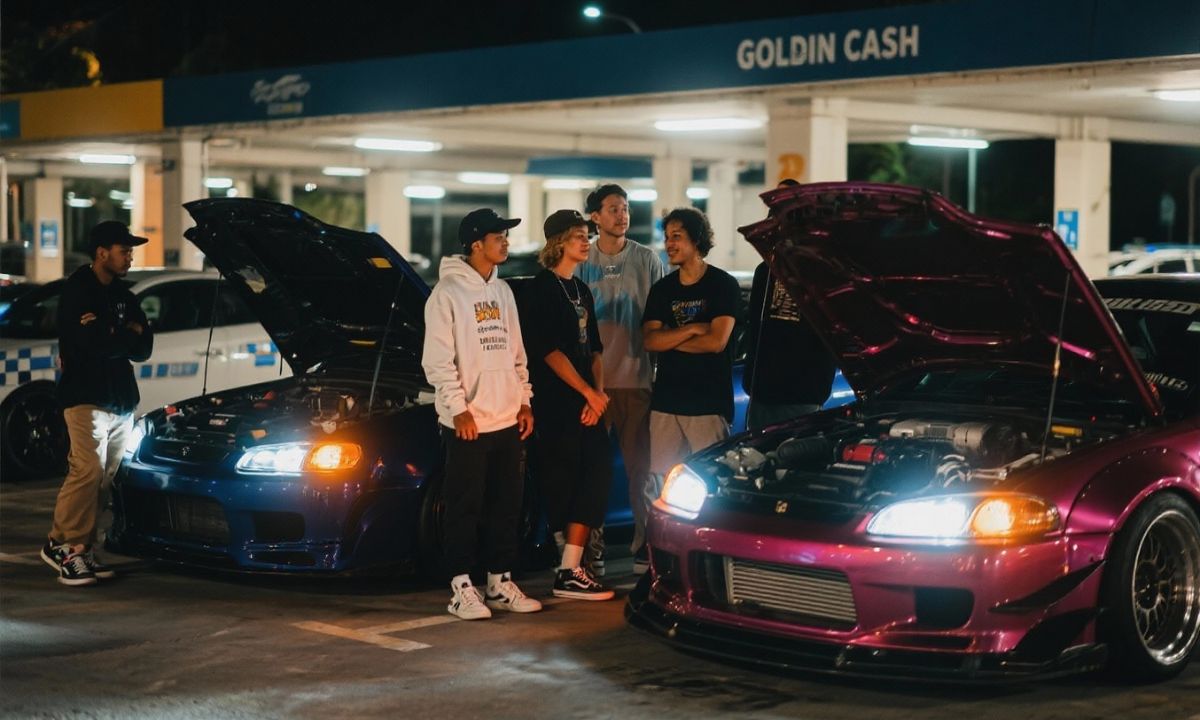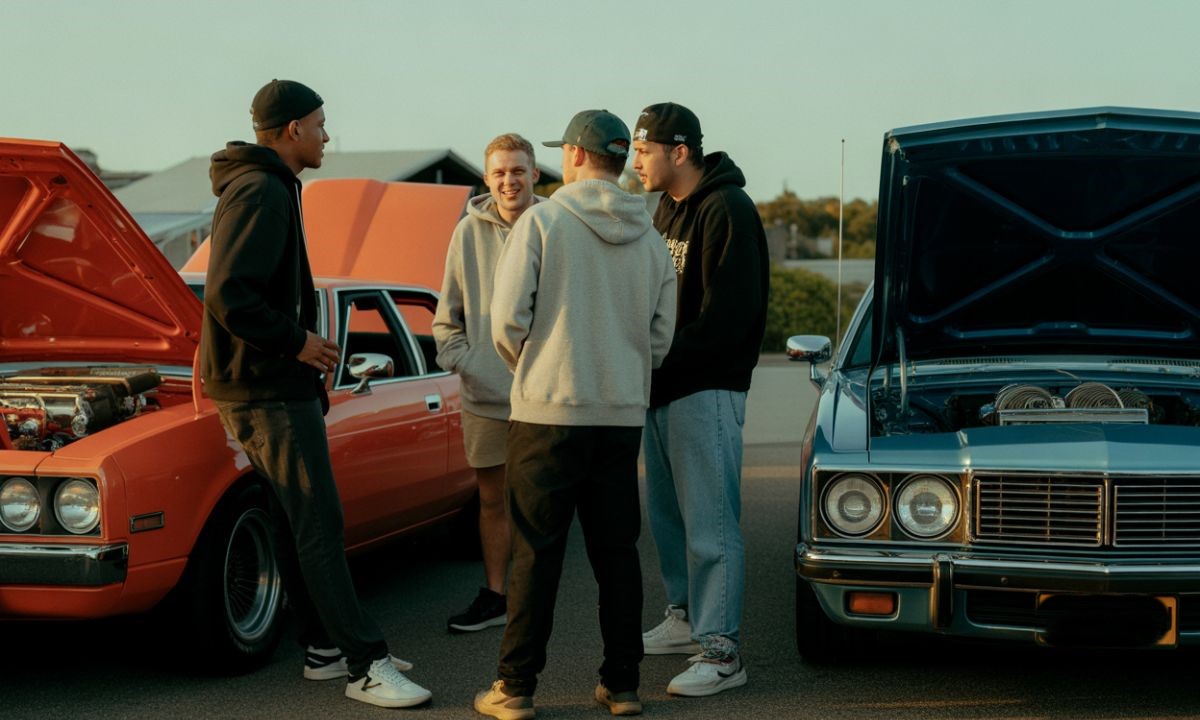Pimp My Ride, Void My Insurance: Are Your Car Modifications Illegal in Queensland?

Imagine you've just spent months perfecting your ride with a killer turbo upgrade, sick suspension lift and custom exhaust that sounds like thunder. Then one night, everything goes wrong. A crash leaves you facing a $50,000 insurance claim rejection because your modifications weren't legally certified. All of a sudden, that dream build becomes a financial nightmare.
For Queensland's car enthusiasts, the line between legal customisation and expensive mistakes is thinner than you might think. While the state has some of Australia's most accommodating modification laws, getting it wrong can cost you your license and potentially hundreds of thousands of dollars in personal liability.
The Modification Minefield: What's Legal and What's Not
Queensland operates a four-tier system for vehicle modifications and understanding these categories could save you from serious trouble. The Department of Transport and Main Roads (TMR) classifies modifications from minor tweaks to major overhauls, each with different rules and consequences.
Minor modifications like towbars, roof racks, and basic stereo upgrades typically don't need approval as long as your vehicle still meets safety standards. These are the modifications most enthusiasts tend to begin with and they rarely attract police attention during roadside checks.
Basic modifications are changes such as shock absorber swaps, power steering conversions or like-for-like engine replacements. These mods must follow the Queensland Road Vehicle Modification Handbook requirements but don't necessarily need professional certification if they're modified correctly.
Complex modifications include engine upgrades, suspension lifts, gearbox changes and body modifications. These require certification by a TMR-approved professional and must be performed in accordance with Queensland-approved modification code. Skipping this step is where many enthusiasts find themselves in hot water.
Specific modifications represent the most restrictive category. These are custom jobs that don't fit standard categories and require direct TMR approval, such as disability access or specialised commercial vehicle setups. For specific modifications, you need to fill out an F1854 Vehicle modification application form along with further documentation for your request to be assessed.
The Certification Trap: Why DIY Can Destroy You
If you read Queensland car forums, then you’ve probably already heard some of the horror stories out there. Complex modifications must be certified by professionals in the Approved Person Scheme. These qualified engineers inspect your work and issue certificates proving your modifications meet safety standards. If you decide to skip this step, then you're choosing to operate an illegal vehicle.
The certification process isn't just a tick-box exercise; it's your legal protection. Police are known to conduct random roadside inspections to ensure safety standards are being complied with. Having that certificate is what keeps your car on the road and out of the impound lot.
When Police Come Knocking: Fines, Points and Worse
Queensland Police have broad powers to inspect modified vehicles, and they use them regularly. In September 2018, Operation Lift took place to educate and ensure modifications were legal. This targeted enforcement action focused on modified 4WDs and resulted in multiple vehicles being fined, defected and impounded based on modification violations.
Non-adherence to modification requirements will result in demerit points and fines. With penalties ranging from a $100 to a $333 fine, plus 1-3 demerit points for each illegal modification.
Police can also issue you with a defect notice. Yellow defect notices allow you to drive away to get repairs done, but red defect notices mean your car gets towed immediately. Your vehicle must stay off the road until you fix every identified problem and prove compliance through re-inspection.
In severe cases, TMR can cancel your vehicle registration entirely. This effectively bans your car from public roads until you bring every modification into compliance with legal requirements.
The Insurance Nightmare: When Coverage Vanishes
Insurance companies can refuse claims if your modifications are illegal or undeclared, even if they didn't cause the accident, which is another reason to ensure modifications are done correctly.
A Brisbane P-plater learned this the hard way in 2024. After crashing his modified car with uncertified coilover suspension, his insurer denied the claim entirely. He faced over $30,000 in personal liability for third-party damages because his modifications voided his coverage.
Compulsory Third Party (CTP) insurance covers injury compensation, but illegal modifications can compromise this coverage too. Under Queensland's ‘at fault’ CTP scheme, this could leave you personally liable for massive injury compensation claims.
Comprehensive insurance presents even more complexity. Insurers require disclosure of all modifications, legal or illegal, minor or major. If you fail to declare an aftermarket exhaust or wheel upgrade, your entire policy could be invalidated.
The disclosure requirement is comprehensive. Custom paint jobs, stereo systems and even minor accessories must be reported. Insurance companies define modifications as any change from manufacturer specifications that might affect appearance, handling, performance, or safety.
Special Rules for P-Platers: Extra Restrictions Apply
If you're on your provisional license, the modification rules become even stricter. Queensland prohibits P-platers from driving vehicles that exceed 130kW per tonne power-to-weight ratios, and this extends to modifications.
Even legally certified modifications can be off-limits for provisional drivers if they boost performance beyond allowable thresholds. That professionally engineered turbo upgrade might be perfectly legal for a full license holder, but completely prohibited for P-platers.
Insurers already consider young drivers higher risk, and combining provisional license status with modifications can result in coverage denial or premium increases that make insurance unaffordable.
Real Consequences: When Dreams Become Disasters
The human cost of getting modifications wrong extends far beyond fines and paperwork. Consider the young enthusiast whose illegal turbo modification led to a $18,000 repair bill when his insurer rejected his crash claim. Or the 4WD owner who discovered his previously legal lift kit had become non-compliant under updated regulations, facing immediate defection at a police checkpoint.
These aren't rare edge cases. They're the predictable result of Queensland's complex modification landscape, where rules can change without adequate notice and modifications that were legal when performed can become violations later.
In serious vehicle accidents involving injury or death, compensation claims can reach hundreds of thousands of dollars. If your illegal modifications void your insurance coverage, you become personally liable for these amounts.
Playing It Safe: How to Modify Legally
The solution isn't avoiding modifications entirely, instead, it's to do them correctly. Start by consulting the TMR modification guidelines before you begin any work. Understand which category your planned modifications fall into and what approval processes apply.

For complex modifications, engage an Approved Person before you start work, not after. These qualified professionals can guide you through the certification process and ensure your modifications meet all legal requirements. The upfront cost of professional certification is minimal compared to the potential consequences of getting it wrong.
Make sure you document everything to be on the safe side. Keep receipts, certificates and engineering reports for every modification. This paperwork is your protection during police inspections and insurance claims. Store it in your vehicle where you can access it immediately if needed.
Always ensure you notify your insurer. Contact them before making modifications to understand how changes will affect your coverage. Get written confirmation that your planned modifications will be covered and update your policy as needed.
Stay up to date with regulation changes. Queensland's modification laws evolve and what was legal yesterday might not be legal tomorrow. Regularly check TMR updates and consider joining enthusiast groups that track regulatory changes.
The Queensland Reality Check
Queensland offers some of Australia's most accommodating modification laws. The state recognises that automotive customisation is part of car culture and has systems in place to support it safely.
The legal framework exists to keep modified vehicles safe for their owners and other road users. Ignoring these requirements can destroy your financial future or worse, someone's life.
The message from Queensland's enforcement agencies is a positive one: modify your vehicle if you want, but ensure it’s done legally. The certification systems exist to help you customise safely, not to prevent modification entirely.
Your dream build doesn't have to become a financial nightmare. With professional certification and honest insurance disclosure, you can modify your vehicle legally and protect yourself from the devastating consequences that can follow when things go wrong.
If it's time to talk, we're here to help. Get free advice direct from our solicitors today.





